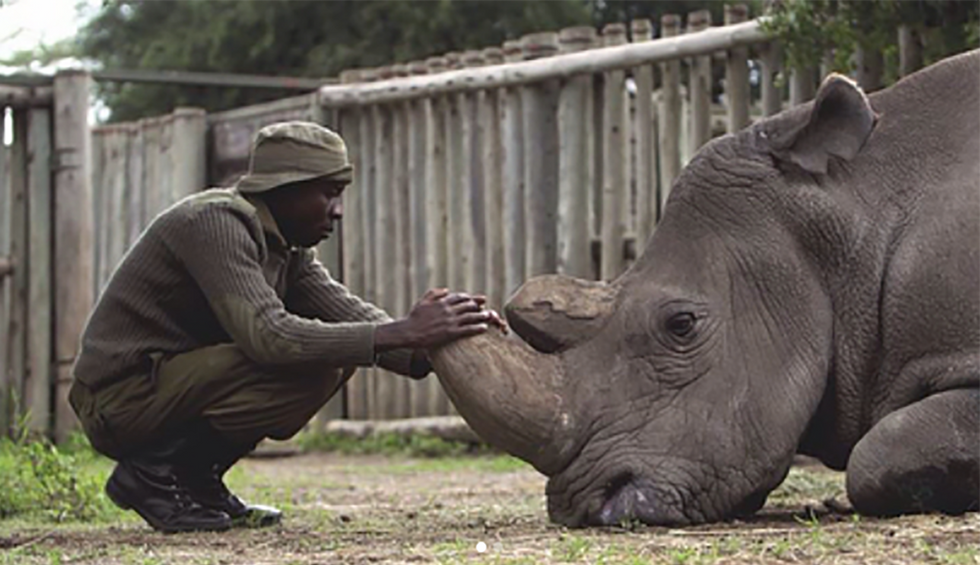On March 20th, the world lost a symbol of hope for the conservation of wildlife.
Sudan, the northern white rhino, age 45, lived in captivity at the Dvůr Králové Zoo in the Czech Republic before being moved to the Ol Pejeta Conservancy in Kenya in 2009, after the subspecies was declared extinct in the wild and action needed to be taken to protect the remaining rhinos.
The other two remaining male northern white rhinos—Suni and Angalifu—died in 2014, leaving Sudan as the last. His caretakers, including James Mwenda, who devotes his life to caring for endangered species at the Conservancy, spent their days keeping him safe, and his story was shared with the world, raising awareness of conservation and the grievous effects of poaching. People came from all over the world to meet him, and he became known as “The Most Eligible Bachelor in the World,” even to the point of having his own Tinder profile as part of a fundraising campaign.
All this action was taken as the last grain of sand fell in the hourglass, however. Sudan was experiencing age-related health issues and infections, and it was decided that nothing was worth his suffering.
Two of Sudan’s kind remain: his daughter and his granddaughter, Najin and Fatu. Neither female can carry a pregnancy to term, leaving in-vitro fertilization as the last hope. Even if it is successful, there will be a strong lack of genetic diversity, which will likely cause problems for future rhino calves.
Over the last decade, rhino poaching, as well as poaching in general, has increased immensely. Although protection efforts have decreased the rate over the last few years, the demand for wild animal products such as horns, fur, and ivory are still high in certain parts of the world.
Every species plays a crucial role in its ecosystem, and in turn, the world. The rhino is an umbrella species, directly impacting many other species. When they browse in the grass, they make paths for smaller animals and enrich the soil, creating diverse plant life. They attract tourists, providing people with jobs and helping the economy of communities. Without rhinos, ecosystems will fall.
The death of Sudan should not signify defeat. It should be a wake-up call for the human race. We have accomplished more than we ever thought possible and have amazing achievements, but when it comes to the planet, we are careless and selfish, doing more harm than good. We cannot cause damage and regret what we’ve done only after complete destruction. We need to choose our actions carefully. The world is not ours—we are a part of something so great and so much more significant than us alone.
Just as we have the power to destroy, we also have the power to protect. Many of the creatures on this earth have been around longer than us and they deserve our respect, and they have a right to live with us in harmony.
The most effective way to support conservation efforts and save our planet is through educating others. Start talking about Sudan and sharing his story, be aware of your actions, and be a voice for planet Earth. There’s only one.
















